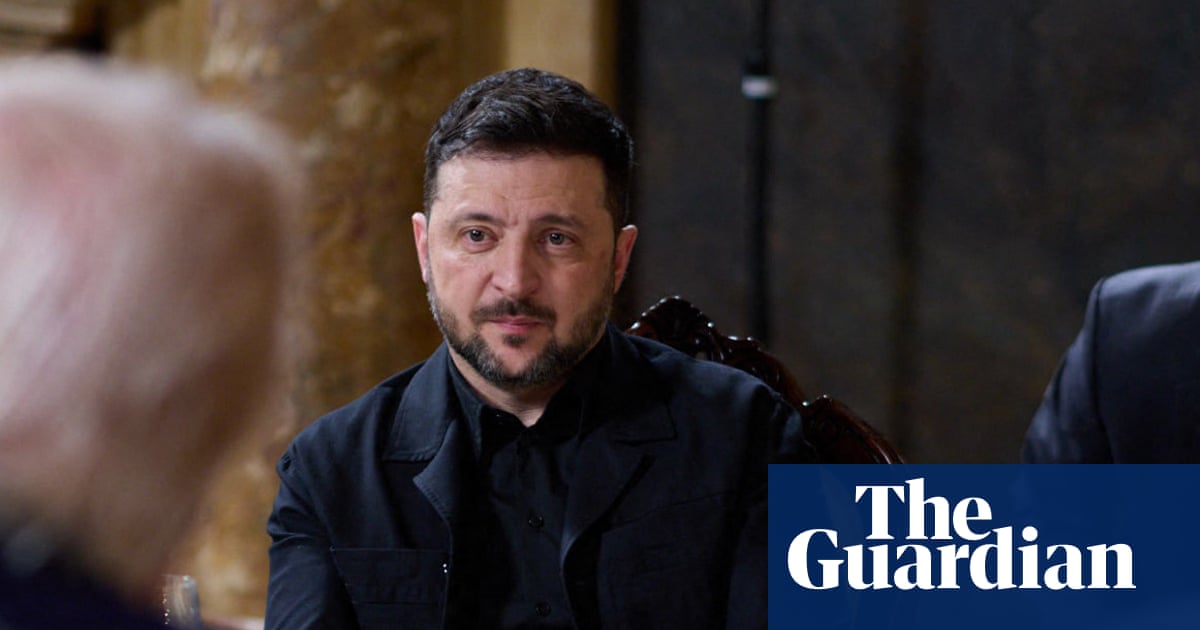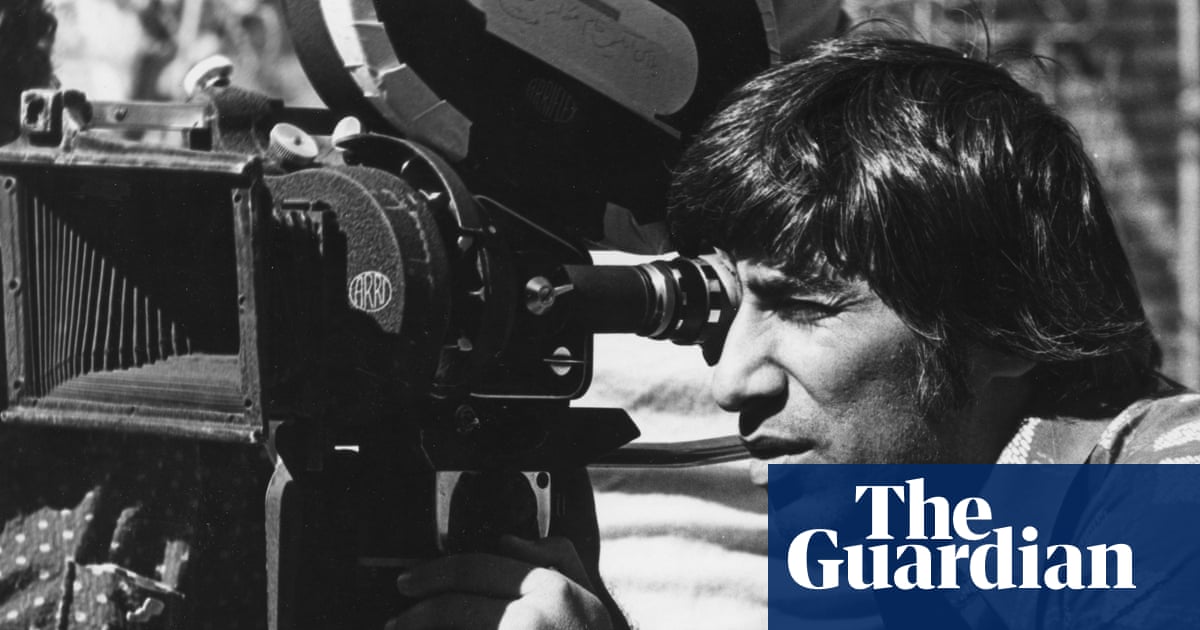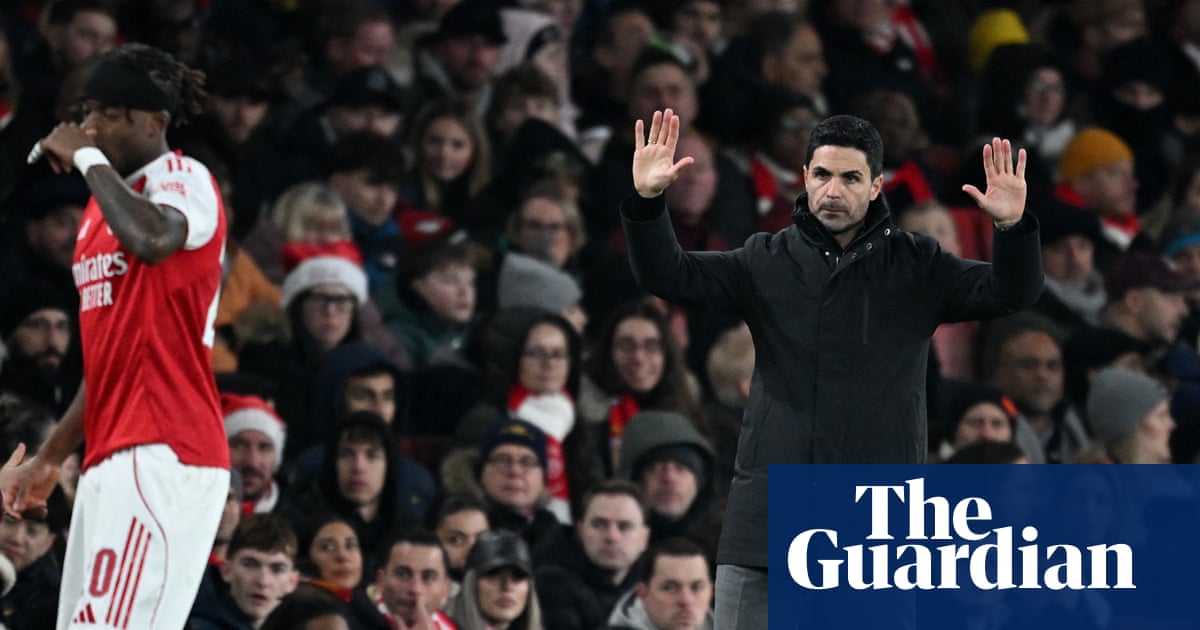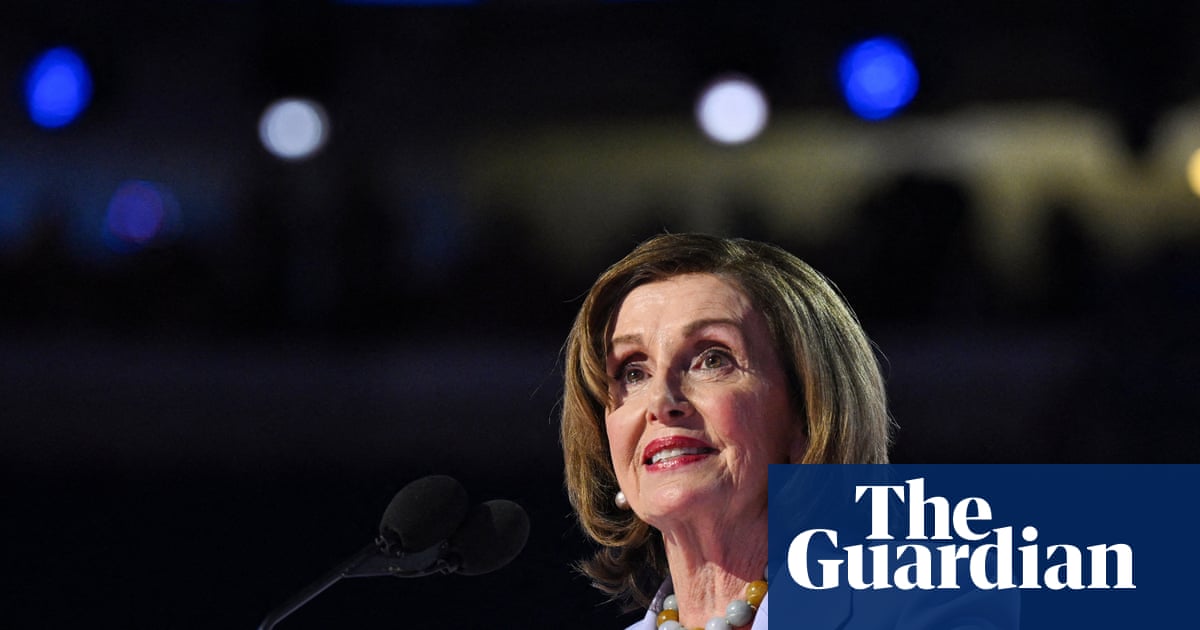In an open office space somewhere inside the vast Electronic Arts campus in Vancouver, dozens of people are gathered around multiple monitors playing EA Sports FC 26. Around them, as well as rows of football shirts from leagues all over the world, are PCs and monitors with staff watching feeds of the matches. The people playing are from EA’s Design Council, a group of pro players, influencers and fans who regularly come in to play new builds, ask questions and make suggestions. These councils have been running for years, but for this third addition to the EA Sports FC series, the successor to EA’s Fifa games, their input is apparently being treated more seriously than ever.
The message to journalists, invited here to get a sneak look at the game, is that a lacklustre response to EA Sports FC 25 has meant that addressing user feedback is the main focus. EA has set up a new Player Feedback Portal, as well as a dedicated Discord channel, for fans to put forward their concerns. The developer has also introduced AI-powered social listening tools to monitor EA Sports FC chatter across various platforms including X, Instagram and YouTube.
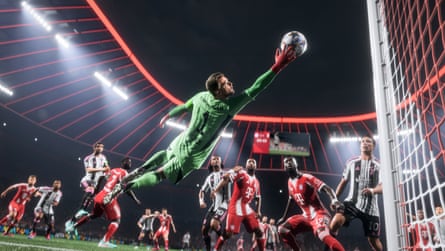
“There were too many disparate groups working on feedback across EA – making it overwhelming for individual teams on the game,” says lead producer, Joel Doonan. “Now we’ve really focused on, how do we make sure the people who need to know what players are saying are getting the right information at the right time with the right amount of detail so they can be as agile as possible?
“There’s also been a shift in the proportion of the team’s resources devoted to addressing feedback. We have a continuous development team – 10 engineers solely dedicated to actioning feedback now rather than waiting for FC 27. I think that’s the expectation of players today – the speed at which live service games action on feedback is a heck of a lot faster than it was a handful of years ago.”
The major change is a genuine surprise – there are now two completely different play styles to choose between: competitive and authentic. The former is all about speed, fluidity and high goal counts, capturing the turbo-charged pinball-style play of classic Fifa titles while removing real-world elements such as player fatigue. That one is aimed squarely at online competitive modes such as Ultimate Team and Clubs. Meanwhile, the Authentic mode is more of a pure simulation aimed at offline players, with slower buildup play and realistic outcomes.
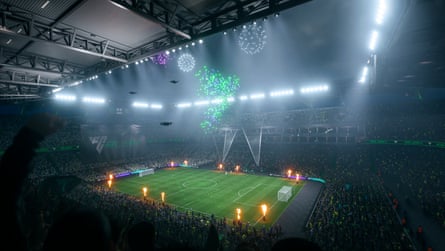
“We had the desire to do this for some time, but we were prioritising other areas,” says gameplay production director, Sam Rivera. “Now however, it’s very clear, based on feedback, that with one single gameplay experience it’s impossible to please the different communities. Some want simulation, some want a more responsive experience where you perhaps have more control over the players instead of the AI helping you with certain behaviours. That creates a skill gap. Obviously maintaining two different game styles is more complex – it’s not just sliders, it’s actual code changes that create different outcomes depending on which different style you’re playing. But we’re in a more appropriate position now to support both in a way that’s close enough to the needs of different communities.”
Dribbling is tighter, slicker, with a greater degree of directional freedom for the player. When you get into a scoring position, there’s a new option that lets you tap the shoot button twice to get a powerful low shot, rather than hoofing the ball into row Z. Goalkeeping has been improved with smarter positioning (via new reinforcement learning AI) and better shot-stopping, cutting down the number of times that the ball is punched right back at the attacking player. Similarly, defensive tackles will result in fewer rebounds, but in counterbalance, attacking players have a better ability to shield the ball, especially Enforcer players (think Haaland or Mbappé) will be able to use their body strength to hold off opponents.
It seems the development team has been looking at other modern games and genres for inspiration. A new Archetypes feature for the Clubs and Player Career modes, lets you design and build players from 13 different types (with names such as Magician, Recycler and Boss), which work a lot like character classes in role-playing adventures, allowing you to earn experience points and upgrade the player’s stats throughout their career. Elsewhere, the Manager Live Career mode, which lets you guide a head coach across multiple seasons, draws from live service games such as Fortnite. There will be weekly challenges throughout the year, which could set objectives such as being at the top of the league at Christmas. Some might be inspired by unpredictable events from the real-life sport. During our demo presentation, career mode design director Pete O’Donnell points to an interesting example – the food poisoning outbreak that hit Italian Serie-B team Salernitana at the close of last season. Could your team cope with a diarrhoea epidemic before a crucial playoff match?
The game’s most popular element, Ultimate Team, is getting a range of new features. The controversial Panini sticker-style fantasy football mode, where participants build teams by opening randomised digital packets of players which then compete online, is getting a live tournament mode, where linked competitions run for the whole season. A new feature called Bounties provides players with randomised challenges such as “score the first/last goal” or “keep a clean sheet” to ensure even if they lose an online match, they still get rewards. Gauntlets, meanwhile, are quicker live events where competitors must play a series of five matches, each with different players from their squad, so that nobody can just endlessly rely on the same superstar cards.
It feels like this focus on user feedback is a well-timed PR exercise as much as a genuine design directive. The recent launch trailer for the game made a big deal of concentrating on in-match footage rather than eye-catching cinematics – the message being, “we’re listening to you, please stick with us”. The timing is vital too. In June, Fifa launched the casual mobile title Fifa Rivals and is sure to be working with developers on a more in-depth footie simulation, possibly in time for the men’s World Cup next year. EA Sports has had this arena to itself for several years, but maybe not for long. Fans were lukewarm about EA Sports FC 25 – their support may soon be more important than ever.
EA Sports FC 26 is launched on PC, PS5, Xbox and Switch, 26 September.

 3 months ago
52
3 months ago
52
